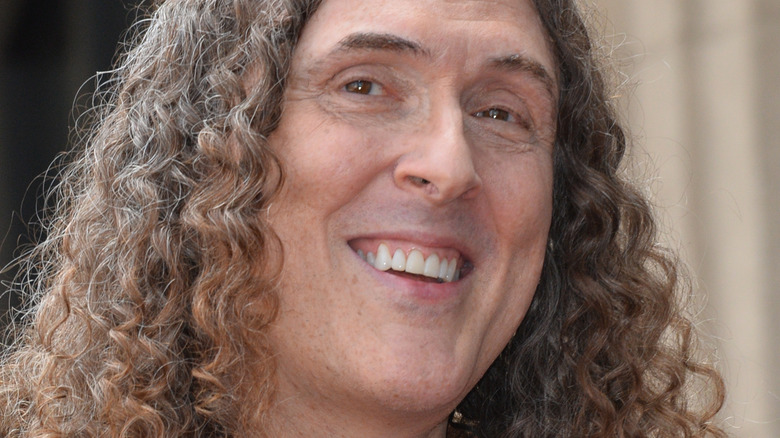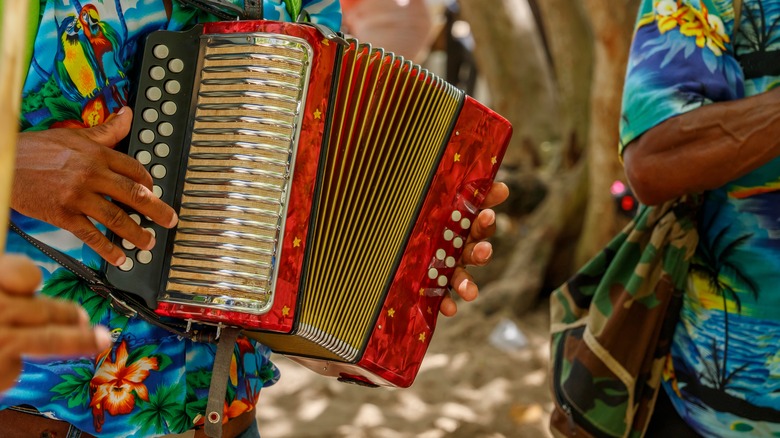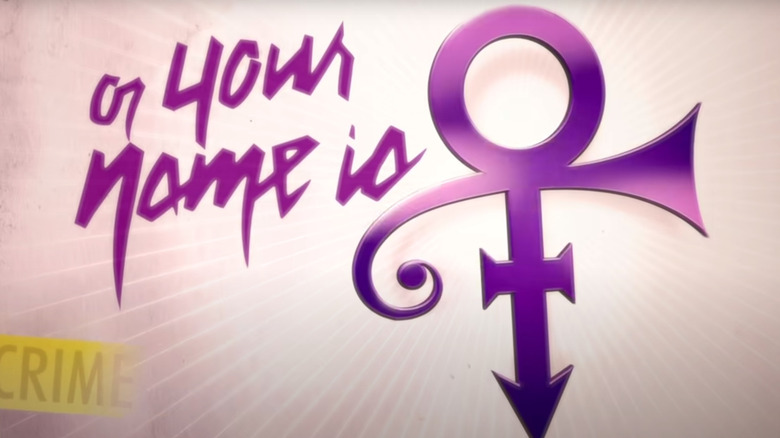How Can Weird Al Legally Make His Parodies?
The parody genre, at least as it exists in music, was big for a while in the 1940s and 1950s, according to the Daily Emerald, with musicians like Spike Jones making popular spoofs of musical styles of the day, turning the musical notes into a joke. By all rights, the genre was in decline by the 1970s, save for a few unknown musicians who would turn up on the "Doctor Demento Show," a syndicated radio program.
That all changed (oddly enough, with the help of Doctor Demento) in the early 1980s, when "Weird" Al Yankovic exploded onto the scene. According to Yahoo News, Al had some success featuring his parody songs on the radio show, but it was in 1985 that he exploded into mainstream success, according to the Minneapolis Star Tribune.
Weird Al has built his career on parodying other artists, either directly (by spoofing, say, Madonna's "Like a Virgin" and turning it into "Like a Surgeon") or indirectly, through what he calls "style parodies." But since copying other people's songs is considered a big no-no in the music industry, how does Yankovic get away with it?
The 'Fair Use' Doctrine
The rules that govern music, lyrics, and their copying, production, and dissemination are extremely arcane and subject to interpretation, and won't be rehashed here. But when it comes to Weird Al and his parodies, there's little ambiguity. The First Amendment to the Constitution, which grants us all the right to free speech (within certain limitations), grants Weird Al (and everyone else) the right to parody other artist's songs. Specifically, according to Stadler IP Law, an artist such as Yankovic has the legal right, under the "Fair Use" doctrine, to copy the melody, meter, arrangement, even the vocal styles of the artist, of any song he's parodying. He doesn't even have to pay the original artist royalties, or even ask for permission.
Of course, Weird Al does actually ask for (and usually get) the permission of the artists he parodies. As his website explains, "Al does get permission from the original writers of the songs that he parodies." Although he's free to parody their work without their permission, he prefers to maintain positive relationships with the artists he's parodying.
It Hasn't Always Worked Out
Over the course of his career, which has spanned parts of six decades, Weird Al has found that most of the artists he's parodied have been "very supportive," according to Billboard. Some, such as Nirvana, have even said that they knew they'd made it when Yankovic parodied them. However, one artist consistently refused to allow him to parody his songs, and that artist is Prince. "He always said no," Al said in an interview.
Yankovic called out the recalcitrant artist, in a way, in his song "Word Crimes." In the lyrics, he says, "You should never write words using numbers, unless you're seven, or your name is Prince!" (angrily saying that last word to provide a bit of verbal punch).
Famously, another artist took Weird Al to task, publicly, by claiming he (the artist) hadn't given Al permission. Coolio claimed that his record company gave Weird Al permission to spoof "Gangster's Paradise" and turn it into "Amish Paradise," but Coolio himself, according to the New York Post, claimed that he did not give Al permission and wouldn't have if he'd asked; he didn't want his gritty dirge about poverty and violence to become a comedy bit about the Amish. He was actually quite salty about it for a while, until he later apologized and the two men buried the hatchet (per Distractify).


